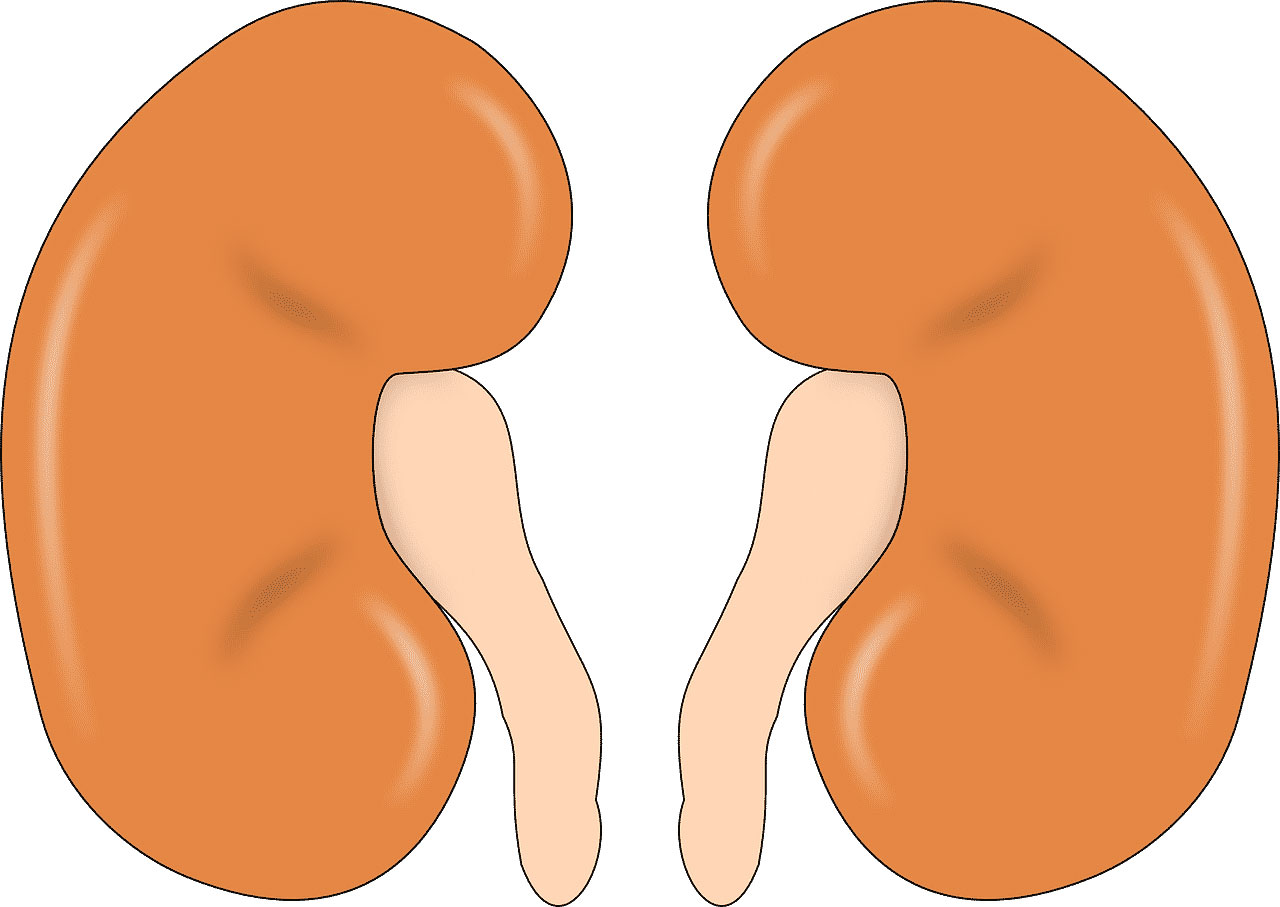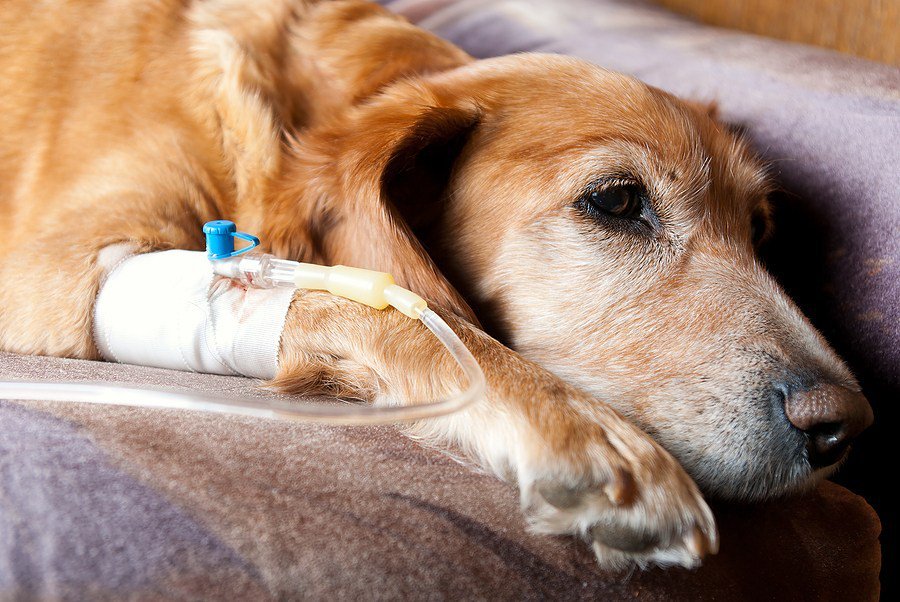Renal failure for dogs
Kidney failure is a common disease in dogs and is one of the most feared disorders by their owners.
And rightly so, because although in some cases the disease can be controlled to give the animal more years of healthy life, it is a disorder that cannot be cured. To give your dog the best prognosis, it is therefore essential to know how to recognize the signs marking the beginnings of the disease, which can allow for long-term care and prolonged longevity.
What is canine renal failure?
Dog kidney failure occurs when the animal's kidneys are no longer able to properly filter the toxins naturally present in its body. Indeed, the dog's body constantly produces waste, especially during the process of digestion and metabolization of nutrients, but also at the rate of the functioning of the various muscles and organs.
The waste produced during digestion is passed through the digestive tract (i.e., the animal's feces), and the waste produced later in the metabolization process, which is urea, is released into the dog's bloodstream. To keep the animal healthy, its blood is constantly filtered by the kidneys (about 1 liter every minute), and the urea it contains is excreted through the urinary system in the form of urine.
When the kidneys stop working, toxins accumulate in the dog's body and cause dysfunctions at different levels. Uremia, a high level of urea, causes general malaise, drowsiness and, eventually, a coma leading to the death of the dog.
In addition to losing their ability to filter waste, the kidneys are no longer able to regulate the volume and distribution of water in the body, as well as the levels of electrolytes (sodium, potassium, calcium, phosphate) and acids. Eventually, the kidneys stop producing erythropoietin, a hormone that stimulates the production of red blood cells, resulting in anemia. If left untreated, anemia can lead to heart problems.
There are two forms of renal failure, acute and chronic. Chronic renal failure is more common in older dogs, although it can occur in animals of any age. It is caused by a gradual deterioration of the kidneys, often due to the aging of the animal's body. It is an insidious form, which progresses silently and is often diagnosed late.
It is an irreversible disease, although it is possible to control the symptoms to extend the life of the dog in good conditions - sometimes by several years. Acute renal failure is sudden, and occurs when kidney function is suddenly impaired. Depending on the cause of the problem, this condition can be reversible, and the dog can sometimes return to a normal life without any sequelae.
However, this acute form of the disease often requires emergency veterinary care to restore the kidneys before they develop serious damage and the health of the animal's other organs deteriorates.
Kidney failure in dogs: symptoms
The symptoms of renal failure, whether chronic or acute, are not very specific, can vary from one dog to another and evolve with the disease. In the early stages of the disease, the first thing to notice is an increase in drinking and, consequently, an increase in urine output.
As the disease progresses, new symptoms appear, such as fatigue, depression, weight loss and lack of appetite. Eventually, gastrointestinal signs (diarrhea and vomiting) may appear, although this is not systematic. Halitosis (bad breath) may also be observed.
At this stage, if the disease is not managed, oral and ocular lesions, hypothermia, anemia with pale mucous membranes, ataxia (nervous disorders) and ascites (abdominal effusion) may appear. In most cases, kidney failure is diagnosed late, when 75% of the kidneys are already destroyed and severe symptoms appear.
Before the disease reaches an advanced stage, the kidneys will compensate for the lack of efficiency due to their damage and continue to play their role until they are almost completely deteriorated. In fact, it is especially important to closely monitor your dog's drinking and urination frequency, as well as the amount of urine excreted, for early detection of any kidney problems.
Annual veterinary checkups are also the best way to diagnose a kidney problem early and manage it before symptoms appear, as these occur when damage is already significant.

Causes of renal failure in dogs
There are many causes of kidney failure in dogs, and it is sometimes difficult to diagnose the underlying condition. In the case of chronic renal failure, a "natural" degeneration occurring as the kidneys age is often involved, which is why this condition mainly affects older dogs.
However, not all older dogs suffer from this disorder and certain factors, such as diet, can lead to premature wear and tear on the kidneys. In young dogs, congenital disorders may be involved. Repeated urinary tract infections that create a long-lasting inflammatory environment can also promote the development of this condition.
Diabetes, a common disease in dogs, is also often associated with kidney failure. Finally, tumors in the kidney or in neighboring organs are also regularly involved. In the case of acute renal failure, the causes are different. A trauma, a brutal shock, can damage the kidneys and cause functional disorders.
Poisoning can also cause kidney damage, especially from anti-inflammatory drugs (ibuprofen, aspirin, etc.), antifreeze or even grapes, fresh or dried, that delicious little fruit that seems so harmless. Blood circulation disorders due to hemorrhage or severe dehydration can also affect the kidneys and leave lasting effects.
Some infectious diseases, such as leptospirosis, leishmaniasis or piroplasmosis, are potential causes of acute renal failure. Finally, urinary or kidney stones can temporarily impair the proper functioning of the kidneys.
Treatment and prognosis of renal failure in dogs
In the case of acute renal failure, it is essential to find and treat the cause of the animal's ailments first. Usually, once the condition that caused the kidney problems is treated - when possible - kidney function will resume on its own. However, some acute kidney conditions can cause lasting or even irreversible damage, in which case the dog will suffer from chronic kidney failure for life.
Chronic kidney disease is treated differently depending on the stage of the disease when it is diagnosed. In the early stages of the disease, when the dog has no symptoms, a change in diet may be enough to control the disease for years.
The animal will be prescribed a diet low in salt, phosphorus and protein, the latter being the main contributors to the production of urea that the kidneys must eliminate. Eventually, infusions to rehydrate the dog and eliminate waste products in the bloodstream may also be prescribed occasionally, when urea levels are too high.
Medications to control possible gastrointestinal symptoms (antacids, anti-vomiting agents, etc.) and painkillers are sometimes indicated, depending on the dog's health. Note that dialysis, which can be used for acute renal failure, is generally not used to treat chronic disorders, mainly because of its high cost and practical constraints.
The same is true for kidney transplants, which can be done in theory but are rarely done in practice because of their high cost, complexity and the difficulty of finding a donor.

My dog has kidney failure, what should I do?
If you suspect that your dog has symptoms of kidney failure, it is essential that you take him to a veterinarian. The veterinarian will perform medical tests to determine exactly whether your pet has kidney damage and, if so, what stage the disease is at.
The earlier your pet is treated, the better the prognosis. Although kidney damage is not curable, early treatment can permanently save what healthy kidney tissue remains in your pet and provide many more years of healthy life. Note that the first symptoms of the disease appear when the kidneys are already very damaged, so it is necessary to consult quickly if your pet starts to show signs of kidney failure.
FAQ
How do I know if my dog has kidney failure?
Kidney failure is a very insidious disease that often evolves without any symptoms, so the best way to diagnose this disorder in time is to have regular check-ups with your veterinarian. An increased water intake and urine output should also worry you, as well as digestive disorders and signs of general malaise (fatigue, anorexia, depression, etc.).
What should I do if my dog has kidney failure?
If you suspect that your dog is suffering from kidney failure, take him to a veterinarian without delay: the earlier he is treated, the better his chances of living for many years in good health.
Can renal failure in dogs be cured?
There is no cure for chronic renal failure. However, its symptoms can be controlled to give the dog months or years of good life (sometimes a change of diet is enough). Acute renal failure is sometimes completely reversible (as in the case of urinary stones), but can also develop into a chronic form depending on the disorder that caused it.
Can a puppy or young dog get kidney failure?
Yes, although kidney failure often affects older dogs whose kidneys tire with age, it is a condition that can plague younger animals as well. Most often, puppies with this disorder have congenital kidney defects. A healthy dog can also develop kidney failure as a result of kidney trauma or poisoning.
Kidney failure is a scary disease, but fortunately it can be controlled in the long term (in most cases) if not cured. To give your dog the best chance of success, there is nothing like annual check-ups with a veterinarian who will make sure his kidneys are healthy and, if necessary, diagnose the disease at an early stage.
When managed early, before the first symptoms appear, chronic kidney disease can often be well controlled for years, sometimes only with a special diet.

